
During the 19th century, the Netherlands was slow to industrialize compared to neighbouring countries, mainly because of the great complexity involved in modernizing the infrastructure, consisting largely of waterways, and the great reliance its industry had on windpower.
Although the Netherlands remained neutral during World War I, it was heavily involved in the war. Imperial German general Count Schlieffen, who was Chief of the Imperial German General Staff had originally planned to invade the Netherlands while advancing into France in the original Schlieffen Plan. This was changed by Schlieffen's successor Helmuth von Moltke the Younger in order to maintain Dutch neutrality. Later during the war Dutch neutrality proved essential to German survival until the blockade by Great Britain in 1916, when the import of goods through the Netherlands was no longer possible. However, the Dutch were able to continue to remain neutral during the war using their diplomacy and their ability to trade.
After the Third Reich invasion of Poland in September 1939 and the ensuing outbreak of the Second World War, the Netherlands hoped to remain neutral, as they had done during World War I 25 years earlier. To ensure this neutrality, the Dutch army was mobilised from 24 August and entrenched. Large sums (almost 900 million guilders) were spent on defence. It proved very difficult to obtain new matériel in wartime, however, especially as the Dutch had ordered some of their new equipment from Third Reich, which deliberately delayed deliveries.
Led by a newcomer, Marien. Hope avoid the attention of the Great Powers and a war.
Although the Netherlands remained neutral during World War I, it was heavily involved in the war. Imperial German general Count Schlieffen, who was Chief of the Imperial German General Staff had originally planned to invade the Netherlands while advancing into France in the original Schlieffen Plan. This was changed by Schlieffen's successor Helmuth von Moltke the Younger in order to maintain Dutch neutrality. Later during the war Dutch neutrality proved essential to German survival until the blockade by Great Britain in 1916, when the import of goods through the Netherlands was no longer possible. However, the Dutch were able to continue to remain neutral during the war using their diplomacy and their ability to trade.
After the Third Reich invasion of Poland in September 1939 and the ensuing outbreak of the Second World War, the Netherlands hoped to remain neutral, as they had done during World War I 25 years earlier. To ensure this neutrality, the Dutch army was mobilised from 24 August and entrenched. Large sums (almost 900 million guilders) were spent on defence. It proved very difficult to obtain new matériel in wartime, however, especially as the Dutch had ordered some of their new equipment from Third Reich, which deliberately delayed deliveries.
Led by a newcomer, Marien. Hope avoid the attention of the Great Powers and a war.
Category Artwork (Digital) / General Furry Art
Species Unspecified / Any
Size 1064 x 1748px
File Size 287.3 kB
Listed in Folders
:D ! *dutchie pride*
It wasn't until the german tanks rolled in that our army set out on their mighty bikes to face them. "They'll never get past the rivers!" We said. The great rivers had kept us safe throughout the centuries, and our water-wizards could flood the surrounding lower grasslands manually if needed.
Then, suddenly, paratroopers.
... We weren't very good at this war thing.
Great at resistance though!
It wasn't until the german tanks rolled in that our army set out on their mighty bikes to face them. "They'll never get past the rivers!" We said. The great rivers had kept us safe throughout the centuries, and our water-wizards could flood the surrounding lower grasslands manually if needed.
Then, suddenly, paratroopers.
... We weren't very good at this war thing.
Great at resistance though!
A Sheep for Switzerland? Uhm... Well, not a bad idea, but usualy Switzerland is more associated with goat and cow then with sheep, couse the mostly mountainous terrain which makes more suitable those animal more then sheep which, istead, are more suitable on hills and plains. Anyway, using a goat or a cow would make it pretty stereotiped, so a sheep would be more original under this point of view.
Don't know, just trying to give suggestions. Proceed with your own judgment.
Don't know, just trying to give suggestions. Proceed with your own judgment.
While the week Hollanders were defeated in 5 days, a small group of Frysian Soldiers held there ground at the Frysia side of the dyke.
http://en.wikipedia.org/wiki/Battle.....he_Afsluitdijk
read this and honor the fallen hero's of Frysia and the Netherlands.
http://en.wikipedia.org/wiki/Battle.....he_Afsluitdijk
read this and honor the fallen hero's of Frysia and the Netherlands.

 FA+
FA+






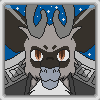
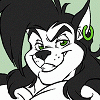
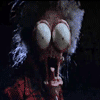







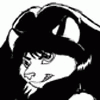






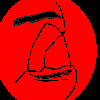
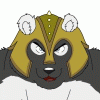





Comments